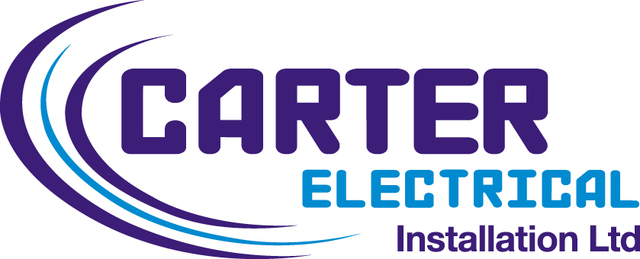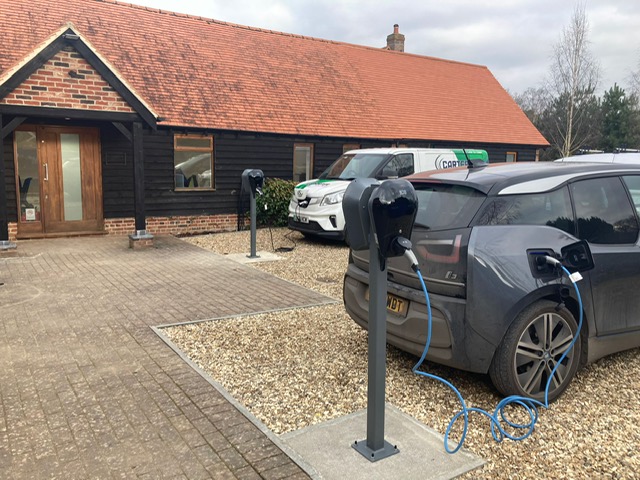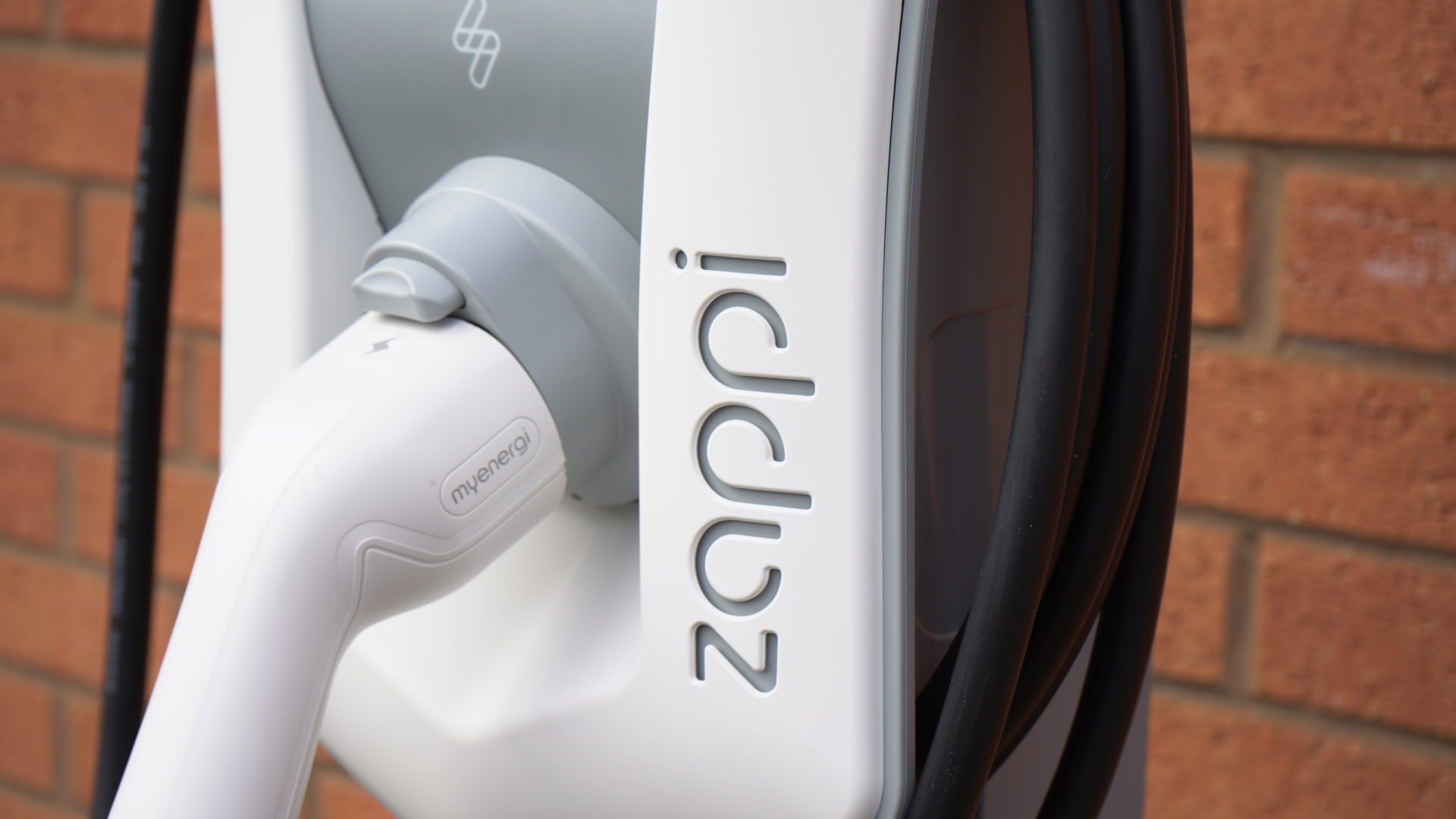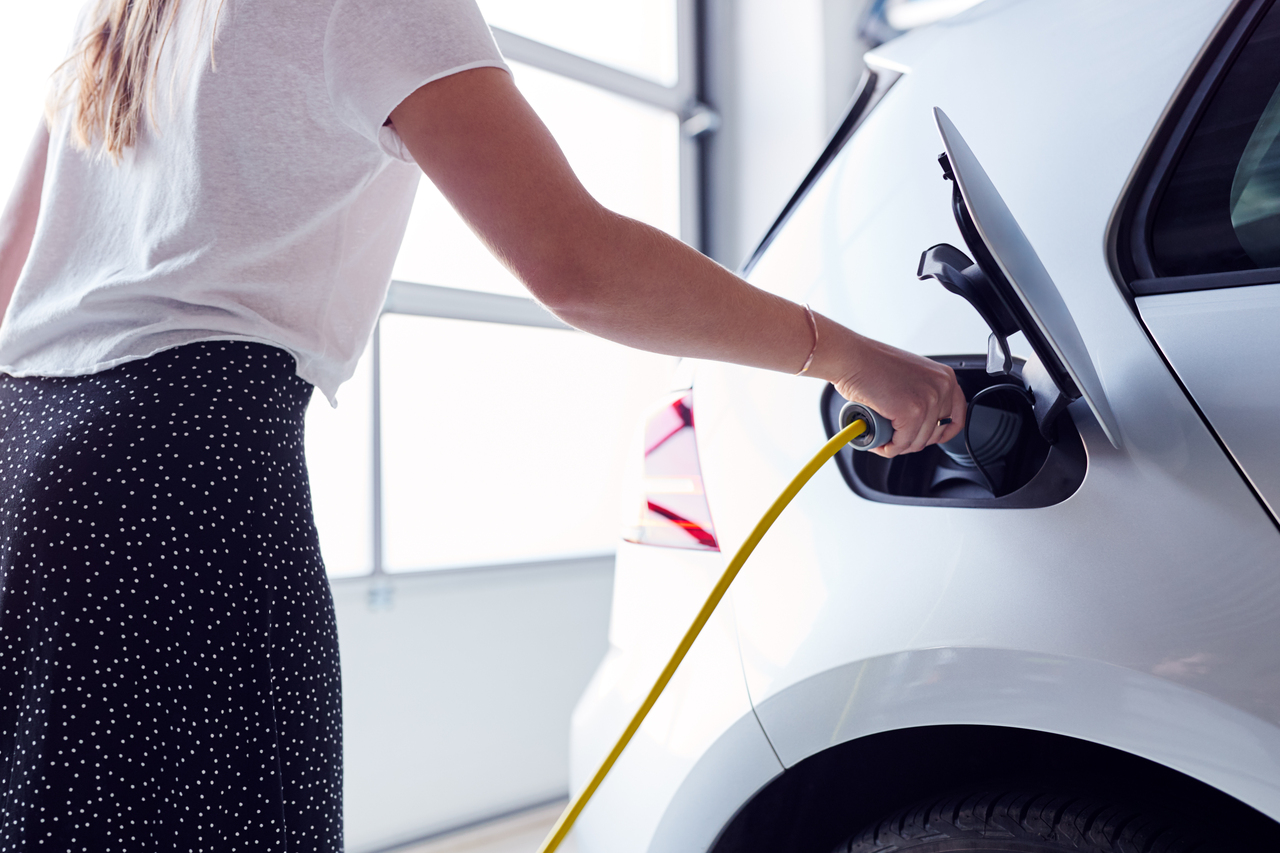Electric Car Charging Installation in Reading
Carter Electrical has around 12 years’ experience of EV charger installation across the Thames Valley. We help people in the area to access the benefits of a home electric car charging point, and of a battery-powered vehicle generally, ranging from lower running costs and a cleaner environment to reduced noise pollution, plus an overall more comfortable driving experience. And if you’re wondering do electric cars pay congestion charge, they are indeed exempt from the London levy under the Cleaner Vehicle Discount.
What’s more, given the ban on diesel and petrol vehicles, due to come in force in 2030, home-based EV charger installation could well, and increasingly, be something which adds value to your property.
Browse our Electric Vehicle Charging Installation Services on the Carter Renewables website.
EV Home and commercial charger installation
At Carter Electrical we specialise in EV home charger installation to give you the convenience of a home electric car charging point – say goodbye to ‘range anxiety’ and have the confidence of always setting off on a long journey powered up, without having to worry about finding a public charger.
We have extensive experience of fitting multiple charger units for business customers in and around Reading, and are seeing strong demand for EV charger installation at commercial sites.
Talk to us for an initial quote – we never give anyone the hard sell.
What are home electric car charging stations?
As the name suggests, a home electric car charging point offers the convenience of firing up your EV where you live. It’s the most convenient solution, and it’s almost certainly cheaper than using public chargers, while definitely better value than fuelling up a standard diesel or petrol model.
What will I need for EV charger installation?
If you’re wondering can you charge an electric car at home, the short answer is that of course you can.
But first you’ll need a garage, driveway or some other form of off-road parking for electric car charging at home. It’s also worth fitting a wallbox EV charger. A standard three-pin 2.4kW wall plug is just about an option, but it’s not necessarily the safest one. And, apart from anything else, if you’re wondering how long does an electric car take to charge this way, the answer is very long indeed – it could take more than 35 hours in electric car charging time.
An EV wall charger slashes those times.
Government grants for electric car charging points
What is the Workplace Charging Scheme (WCS)?
The Workplace Charging Scheme gives businesses financial support through vouchers covering part of the start-up costs for EV home charger installation. Each voucher covers up to 75% of the total purchase and installation costs, or up to £350 per socket. This is for a maximum of up to 40 charging stations, no matter how many sites your business has. Vouchers must be redeemed by installers authorised by the Office for Zero-Emission Vehicles (OZEV) and have the approval of an EV charger manufacturer.
What’s more, this EV charger grant scheme was extended early in 2022 to cover registered charities, owners of commercially-let properties and SMEs.
Electric Vehicle Homecharge Scheme
The Electric Vehicle Homecharge Scheme (EHVS) is an EV home charger grant from the UK government providing funds for the cost of fitting a wallbox at home. It covers 75% of the cost, up to £350. This grant should not be confused with the Plug-in Car Grant (PICG) which helps with the expense of buying an electric vehicle rather than an electric car charging port.
But government grants towards electric car charging installation cost changed in April 2022. What that means is that homeowners in bungalows and detached, semi-detached and terraced properties can no longer claim this funding. In essence, that means most homeowners are no longer eligible. However, you can apply if you live in a flat or rented accommodation.
Equally, the wall charging unit must be fitted by an Office for Zero Emission Vehicles-approved installer, while a number of other conditions also need to be met – covering things like not being allowed to claim again unless you concurrently own two EVs, and replacing an old charge point if you move house.
Electric car charging points installation in Reading
Carter Electrical provides electric car charging points installation and servicing across Reading and its surroundings. Most properties are suitable for EV home charger installation, we can give you a no-obligation assessment today.
Decisions to make about EV home charger installation
If you’re wondering which home EV charger to go for, there are a number of decisions you’ll have to make.
EV home and business charger installers in Reading and surrounding area
Electricians covering Berkshire, Oxfordshire, Surrey and Hampshire.
If you’re wondering ‘Where are the best EV home charger installers near me?’, we’re based in central Reading and cover much of Berkshire, Oxfordshire, Surrey and Hampshire.
What’s more, we’re fully licensed for commercial EV charger installation under the WCS. We’ve helped numerous businesses across Reading and the wider Thames Valley area, and we could help you, too, to provide a swift electric car charging time on-site for your clients and other visitors.
Frequently Asked Electric Car Charging Questions
How much does it cost to charge an electric car at home?
The quantity of charging you do, the kind of charger you have, and how frequently you utilise public charging will all affect how much it costs. You can look for off peak times to charge your car, which will save you money on charging your vehicle.
Speak to us at Carter Electrical to find out more about how much it may cost to charge your electric car.
How long does it take to charge an electric car?
There is no definitive answer to how long it takes to charge an electric car as various factors affect how long it takes a battery to charge on a single charge.
Factors such as battery capacity, state of charge, and ambient temperature have an effect.
Fast chargers such as home or supermarket and public car park chargers with 7 kW or 22 kW power. Ultrafast or ultrafast chargers at certain charging stations deliver over 100kW of power. A 50 kW fast charger is also installed on the road. Battery capacity affects how long it takes to charge once. Using a 7.4kW home charger, a Tesla Model S with a battery capacity of 100kWh takes 15 hours to fully charge from empty, while a Volkswagen e-Up with a 33kWh battery takes Fully charged in less than 5 hours.
What are the benefits of having an electric car charger installed at home?
Installing an electric car charger at home offers significant advantages. It ensures the convenience of charging in your own driveway, reduces costs compared to public charging, and allows you to tap into cleaner energy sources.
Home charging also saves time, as it eliminates the need for trips to charging stations, potentially increases your property’s value, and can even provide backup power during outages.
What is the electric car charging installation process?
The electric car charging installation process involves several key steps to ensure a safe and efficient setup at your location:
- Site Assessment: Determine the best electric car charger location and check electrical panel capacity.
- Permitting: Obtain necessary permits if required.
- Electrical Upgrades: Modify the electrical panel if necessary to support the charger.
- Electric Car Charger Installation: Mount and wire the electric charger, followed by testing and, if needed, a final inspection.
How long does it take to install a electric vehicle charging point?
The installation time for an electric vehicle (EV) charging point varies based on factors like charger type and property requirements. Typically, residential installations take a few hours to a day, while commercial or public charging setups may range from days to weeks. Consult with us and we can discuss further.




